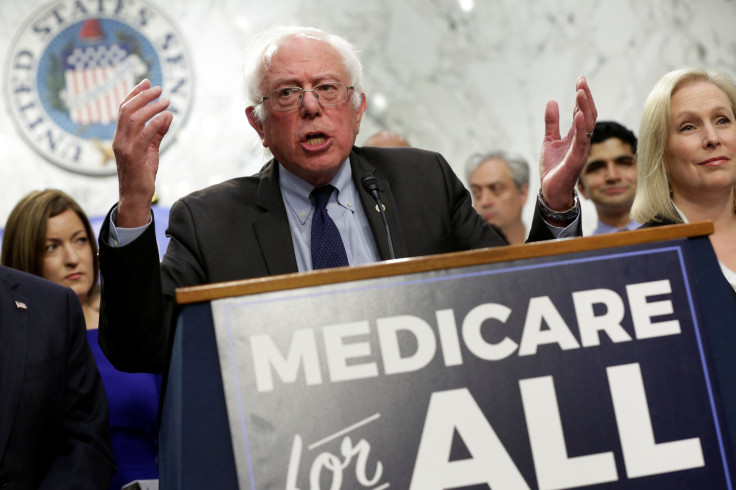Bernie Sanders Is Right: 'Medicare For All' Is Best For US, Scientific Studies Confirm

KEY POINTS
- Medicare for All is "the most cost-effective and popular solution to this health care crisis," says a study published in PLOS Medicine
- "In fact, it’s the only way to rein in health care spending significantly in the U.S."
- "There is near-consensus in these analyses that single-payer would reduce health expenditures while providing high-quality insurance to all US residents"
It turns out Sen. Bernie Sanders, I-VT, the frontrunner among the Democratic Party's presidential candidates, is quite correct when he claims, "The most cost-effective and popular solution to this health care crisis is to guarantee health care as a right through a Medicare for All single-payer health care system."
A new and comprehensive systemic review analyzing 22 single-payer plans over the past 30 years published in the peer-reviewed scientific journal, PLOS Medicine, "found a high degree of analytic consensus for the fiscal feasibility of a single-payer approach in the U.S."
The study carries the title, "Projected costs of single-payer healthcare financing in the United States: A systematic review of economic analyses."
It found that every single study it analyzed predicted a single-payer system such as Medicare for All yields net savings over several years. But more important, Medicare for All means everyone in America will have high-quality health care coverage.
The study concludes Medicare for All is far less costly than the existing system mostly because it slashes the mammoth administrative costs that make healthcare in the U.S. so expensive. A single public plan negotiating rates with healthcare providers will greatly simplify billing. Medicare for All will eliminate three-quarters of the $812 billion the U.S. now spends on healthcare administration.
The study noted even the right-wing think-tank Mercatus Center found $2 trillion in net savings over 10 years from a single-payer Medicare for All system.
"In fact, it’s the only way to rein in health care spending significantly in the U.S.," said the study.
In 2018, total U.S. healthcare costs came to a staggering $3.6 trillion, representing 17.7% of GDP, the highest among the world's developed nations. Healthcare is on track to consume more than 20% of GDP over the next decade. Other studies see that if the federal government does nothing and maintains the current dysfunctional system, the U.S. will spend $49 trillion over the next decade on healthcare. Sanders argues this scenario will be "an incredible burden on businesses, working families, and the entire economy."
The study points out even more savings are possible in a Medicare for All system because it will give the U.S. a uniform electronic health records system like every other wealthy country. Such a system generates additional savings and will help reduce healthcare spending for fraudulent services.
The study noted that to achieve net savings, single-payer plans rely on simplified billing and negotiated drug price reductions, as well as global budgets to control spending growth over time. It said replacing private insurers with a public system is expected to achieve lower net healthcare costs.
All in all, the study concludes Medicare for All is a sensible, efficient, and effective way to guarantee excellent health insurance for Americans.
"There is near-consensus in these analyses that single-payer would reduce health expenditures while providing high-quality insurance to all US residents," according to the study authors.
© Copyright IBTimes 2024. All rights reserved.





















